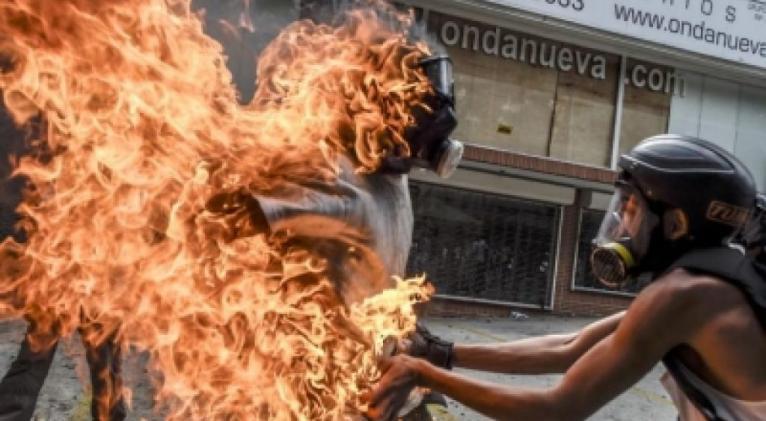#YoVotoNO: The Campaign within the U.S. against the Constitutional Referendum
especiales

The campaign #YoVotoNo has started in the U.S. in an attempt to influence the outcome of the Constitutional referendum scheduled for February 24th, in Cuba.
As part of the "strengthening of the United States politics toward Cuba", to promote via internet "the flow of free and without regulations information within the island" proposed by the Task Force, the campaign #YoVotoNo has started in an attempt to influence the results of the constitutional referendum scheduled in Cuba for next February 24th.
According to a release of the North American radio station Radio Martí: #YoVotoNo has a main purpose: to reject next February 24th the constitutional referendum by answering the question "Do you ratify the new Constitution of the Republic?".
According to this radio station, part of the Office of Cuba Broadcasting and one of the most influential members in the Task Force, as it was demonstrated in the last meeting of that group last December 6th in Washington:
"Many Cubans have shared in social networks the tags #YoVotoNo and #Ni1+ in an attempt to demonstrate the dissatisfaction with the Cuban régime and the direction of Raul Castro and Miguel Díaz-Canel."
With an editorial politic based mainly on issuing "fake news" with the purpose of subverting Cuba’s reality is not very difficult to lay bare open the new misinforming strategy in social networks of this radio station with regard to the constitutional referendum in Cuba.
In the budget papers for fiscal years 2018 and 2019 of the Broadcasting Board of Governors of the United States, recent public facts, it proposed to use Facebook accounts of Cuban “nationals” and "unmarked" to spread content created by the U.S. government without informing the Cuban users of Facebook:
"Due to the blockade web of the Radio and TV Martí in the island, the digital strategy of the BBG has changed to social networks consistent with the practices that put YouTube, Google and Facebook among the websites more visited in Cuba. With the use of AVRA technology, the programs of Radio Martí became visual radio and were broadcasted through Facebook Live together with the programming of TV Martí. This provides the BBG an efficient and profitable additional distribution, for both its radio (radio visual) as for the TV content.
In fiscal year 2018, the BBG is creating in Cuba digital groups so they create fake accounts in Facebook to spread information. Opened websites in Cuba increase the possibilities to appear in the news of Cuban users of Facebook."
The strategy of making up users (the "many Cubans") who from the island post comments in the networks is nothing new. The same practice was used during the so-called Green Wave against Iran during the elections of 2009. In a work published in this same blog on June 12th, 2010 we wrote:
In the case of Cuban - without forgetting the lack of connectivity to Internet due to the economic blockade imposed to Cuba -, it’s to repeat similar experiments to those recently carried out by the U.S. government against Venezuela and Iran.
During the Green Wave - where twitter played a key role that even the Secretary of State ordered to postpone a scheduled maintenance to the servers for Iran of this social network -, most activists who supposedly denounced the election fraud, the manifestations and repression in that Middle East country, they were not there as they wanted to make believe, but in North American territory.
Could be said that something else happens in the case of Cuba? Undoubtedly many of the tweeter users whose mission consists on staining the Revolution are in the United States or other countries, but not all. Some carry out their propagandistic task from the very Interests Office of the United States in Havana.
Of course that, besides the robots and trolls that intelligence services usually set in motion in cases like the referendum about to take place, of course at present in Cuba there are real people who tweet their dissatisfaction from Cuba as it’s the case of some mercenaries among them the notorious blogger, Yoani Sánchez.
Also in this blog was published in July 2009 the statements of this person on the possible realization of a Green Wave in Cuba. When she was asked in an interview on the situation existing in Iran and the similarity with Cuba as well as the possibility of a similar reaction in Cuba, the "influential" blogger responded:
"I think we are a bit far from that. The civil society is still a little broken, the connecting points, the ways to connect each other are very weak, but I don't believe the chances are very far. It’s possible that in a couple of years we can react like that. Then there will be more sophisticated technologies and maybe the Cuban green wave is even more intense."
What she meant when she said a more intense Green Wave? According to Wikipedia, the experiment carried out by the Department of State during the protests of the so-called Revolution of Facebook and Twitter in Iran had a toll of twenty dead. Will the campaign #yovotono that now the United States promotes against Cuba, the same as in Iran, another summon to plow violence and death?













Add new comment